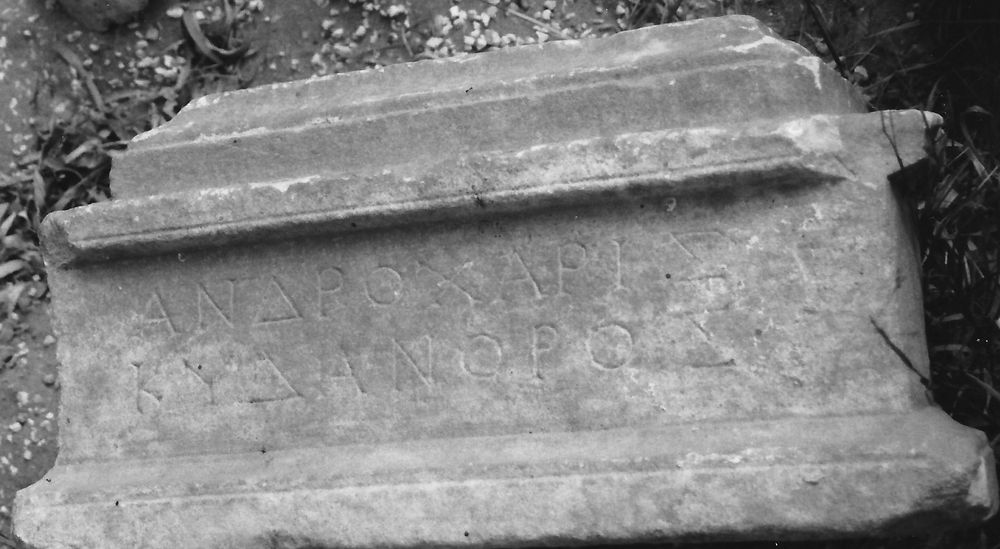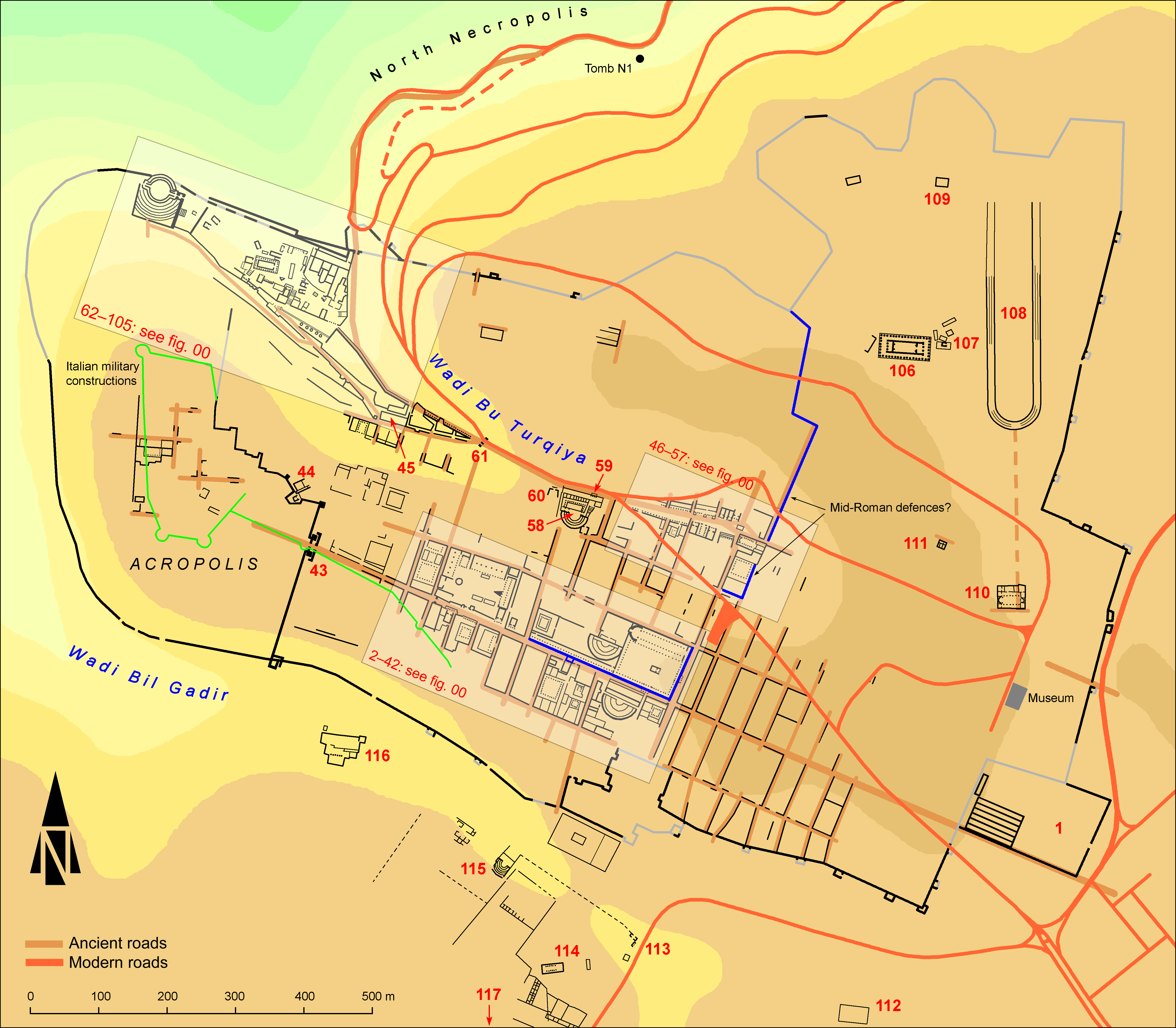EpiDoc XML:
IGCyr1219002
Trismegistos ID:
738768
Source description
Support: White marble base, reddish from earth, with plain mouldings on top and below on three, sides, chipped off at upper angles; a hole and canal for attachment on the upper side (w: 0.61 × h: 0.33 × d: 0.42).
Layout: Inscribed in two lines on the face, between the mouldings (w: 0.535 × h: 0.13 × d: 0.40).
Letters: 0.03; small serifs, non-slanting sigma, upsilon with very short hasta and widely open oblique arms.
Date: Probably first half of the second century BC (lettering).
Findspot: Copied by L. Cherstich before 2001 at Cyrene ➚: in the South Necropolis, tomb S62 Cassels.
Place of origin: Findspot.
Last recorded location: Cyrene Museum, inv. number unknown. Seen by C. Dobias-Lalou in 2001 in Shahat: Cyrene Museum.
Text constituted from: Transcription from stone (CDL).
Bibliography
Thorn – Thorn 2009, p.220 (mention); IGCyr 121900 ➚; Belzic 2022, catalogue B.26 (typology).
Text
French translation
Androkharis fils de Kydanôr.
English translation
Androcharis son of Kydanor.
Italian translation
Androcharis figlio di Kydanor.
Commentary
This base, which C. Dobias-Lalou saw in 2001 in the courtyard of the Museum, had been previously copied by Cherstich in tomb S62 (mentioned by the Thorns in 2009).
Both names are attested in Cyrenaica for the first time and both are compounds with members commonly used in Greek anthroponyms. Androcharis is known only in the south-Aegean Doric islands, while Kydanor seems to be an absolute hapax.
CC BY-NC-SA 4.0 Deed Attribution-NonCommercial-ShareAlike 4.0 International License.
All citation, reuse or distribution of this work must contain a link back to DOI: https://doi.org/10.60760/unibo/igcyrgvcyr2 and the filename (IGCyr000000 or GVCyr000), as well as the year of consultation.

